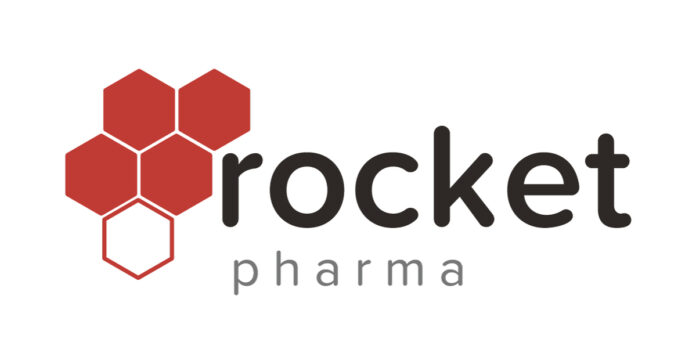CRANBURY, N.J.– Rocket Pharmaceuticals, Inc. (NASDAQ: RCKT), a leading late-stage biotechnology company advancing an integrated and sustainable pipeline of genetic therapies for rare childhood disorders with high unmet need, today announces the addition of RP-A601 to Rocket’s cardiac gene therapy portfolio as well as anticipated highlights for the year ahead across the Company’s world-class pipeline of lentiviral and AAV gene therapy programs targeting rare hematologic and cardiovascular diseases. These announcements and anticipated highlights will be presented at the 41st Annual J.P. Morgan Healthcare Conference today at 2:15 p.m. PT by Gaurav Shah, M.D., Chief Executive Officer, Rocket Pharma.
“I am extremely excited to build on our significant progress in 2022 as we advance six programs with compelling clinical and/or preclinical proof of concept, including the addition of RP-A601 for the treatment of arrhythmogenic cardiomyopathy due to plakophilin 2 pathogenic variants (PKP2-ACM), expanding our industry-leading cardiovascular AAV gene therapy portfolio. Equally, we look forward to submitting our first regulatory filings, for Fanconi Anemia and Leukocyte Adhesion Deficiency (LAD-I), this year,” said Dr. Shah. “RP-A601 for ACM aims to address the unmet needs of approximately 50,000 adults and children in the U.S. and EU who face this devastating genetic heart disease marked by arrhythmias and heart failure that often results in sudden cardiac death. We are moving this program forward into the clinic having demonstrated robust preclinical proof of concept using an rh74 serotype that has been associated with a favorable safety profile in the clinic for other diseases. We anticipate being first to clinic with a submission of an IND for RP-A601 in the second quarter of 2023 for a multi-center, dose-escalation study for the treatment of PKP2-ACM.”
Dr. Shah continued, “Additionally, positive data updates today in Danon Disease include several months of additional Phase 1 results that demonstrate further robust improvements in all biomarkers, and in how both adult and pediatric patients function and feel, that diverge meaningfully from natural history patients of similar age and disease characteristics. We have shared these updates with the FDA as part of our pivotal Phase 2 study design discussions. Additionally, we have successfully produced two Danon AAV cGMP batches at our Cranbury, N.J. facility with improved product specifications versus Phase 1 thus taking another essential step towards commercial readiness.”
“Clinical programs from our hematology portfolio, represented by our Phase 2 pivotal studies in Fanconi Anemia and LAD-I, remain on track. We are laser focused on regulatory submissions, with BLA filings anticipated for LAD-I and FA in the second quarter and fourth quarter of 2023, respectively,” said Dr. Shah. “Lastly, I am pleased to note an extension of our cash runway, which we expect to fund operations through 2024. I am incredibly pleased with our progress, and excited about the catalyst-rich year ahead as we continue on our path to becoming a fully integrated rare disease and gene therapy company with capabilities extending from discovery through manufacturing and commercialization.”
RP-A601 for PKP2 Arrhythmogenic Cardiomyopathy on Track for IND Submission in Q2 2023
- ACM, or arrhythmogenic right ventricular dysplasia (ARVC), due to plakophilin 2 pathogenic variants (PKP2-ACM), is a high-risk cardiomyopathy caused by autosomal dominant mutations in the PKP2 gene. ACM is characterized by frequent and life-threatening ventricular arrhythmias and structural ventricular myopathy. Available treatments fail to address the underlying genetics and disease biology and do not alter disease progression. PKP2-ACM affects approximately 50,000 people in the U.S. and EU.
- Preclinical proof of concept from a translationally relevant animal model has been demonstrated following Rocket-sponsored studies with academic partners at NYU Grossman School of Medicine. The preclinical studies with a cardiomyocyte-specific PKP2 knockout mouse model of ACM evaluated initial proof of concept and dose-related effects of AAV vectors, including survival, functional and anatomic benefits. Notably, studies evaluated the delivery of AAV at seven and 14 days following induction of PKP2 knockout and subsequent disease onset.
- Results demonstrated increased survival and preserved cardiac function in the PKP2 knockout mouse model.
- 100% of adult PKP2 knockout mice receiving RP-A601 seven days after knockout induction demonstrated survival to the five-month duration of the evaluation compared to 100% mortality by approximately day 50 in PKP2 knockout mice receiving formulation control. PKP2 knockout mice receiving RP-A601 were observed with preserved ejection fraction and right ventricular area at 28 days, sustained to five months.
- Fourteen days following RP-A601 administration, PKP2 knockout mice demonstrated robust survival with a similar degree of cardiac benefit to five months. RP-A601 was also associated with mitigation of isoproterenol-induced PVCs and arrhythmias, which are major morbidity components of ACM.
- GMP drug product manufacturing is completed, and a potency assay has been developed. Based on the strength of the pharmacology and toxicology data, Rocket anticipates filing an IND in the second quarter of 2023 for a Phase 1 multi-center, dose-escalation study evaluating two doses.
RP-A501 for Danon Disease Moving Toward Global Phase 2 Pivotal Study
- Efficacy results from the Phase 1 study continue to demonstrate durable improvement or stabilization of clinical parameters in the Danon Disease patients treated to date. Notably, these patients’ improvements and stabilization of brain natriuretic peptide (BNP) and New York Heart Association (NYHA) class are in stark contrast to BNP increases and NYHA class deterioration observed in a representative sample of pediatric and adolescent natural history patients. These data have been presented recently to the FDA.
- The Phase 2 pivotal trial remains on track for initiation in the second quarter of 2023 based on ongoing and productive FDA interactions.
- Robust Technical Operations capabilities are highlighted by the advancement of in-house AAV cGMP manufacturing at Rocket’s state-of-the-art facility in Cranbury, N.J. Completion of two in-house production runs resulted in high-quality drug substance enabling an approximately threefold increase in the number of patients treatable per batch, a significantly improved full versus empty particle ratio, and promising product comparability data generated to date compared to the Phase 1 material manufactured externally.


